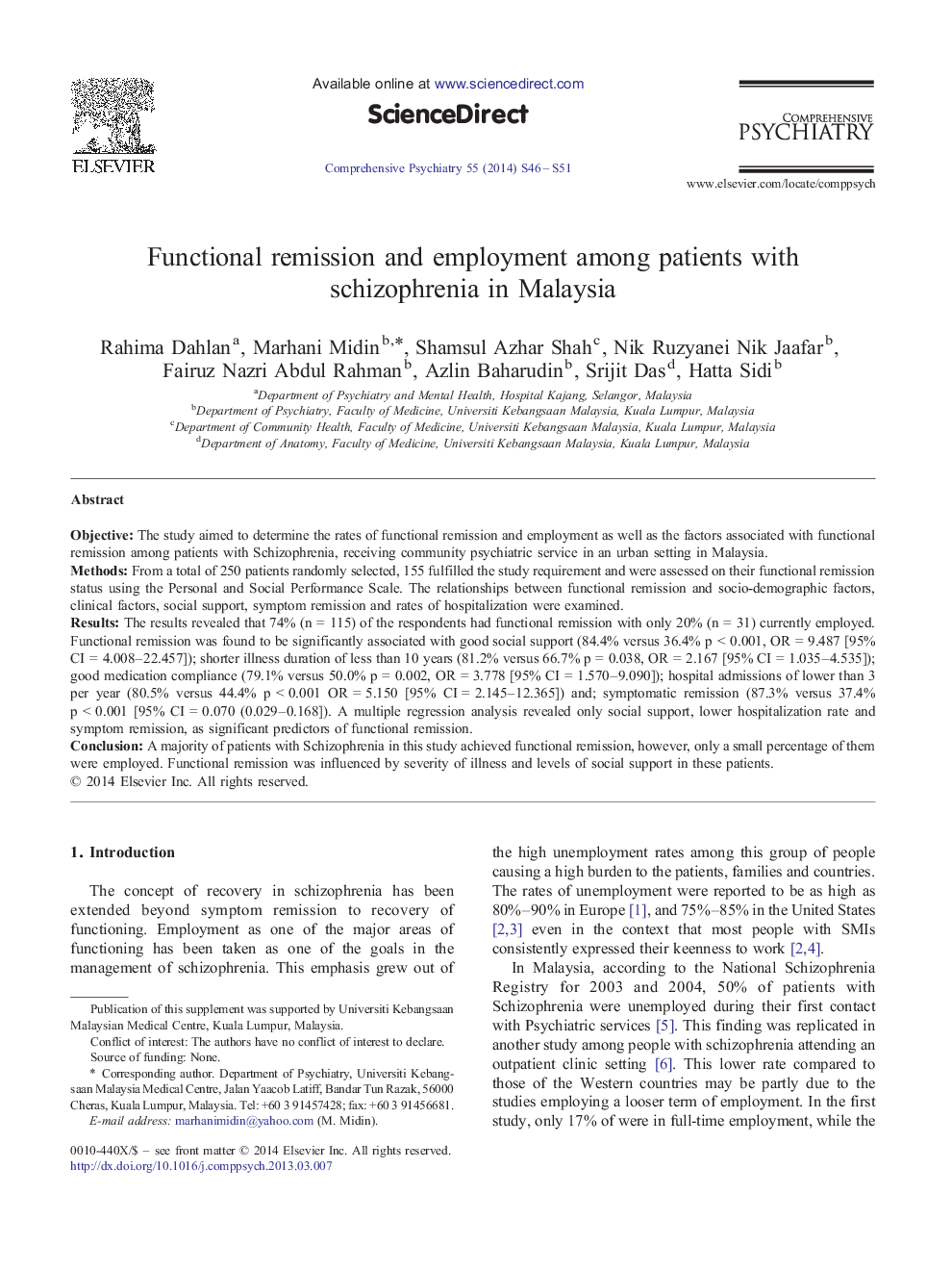| Article ID | Journal | Published Year | Pages | File Type |
|---|---|---|---|---|
| 317467 | Comprehensive Psychiatry | 2014 | 6 Pages |
ObjectiveThe study aimed to determine the rates of functional remission and employment as well as the factors associated with functional remission among patients with Schizophrenia, receiving community psychiatric service in an urban setting in Malaysia.MethodsFrom a total of 250 patients randomly selected, 155 fulfilled the study requirement and were assessed on their functional remission status using the Personal and Social Performance Scale. The relationships between functional remission and socio-demographic factors, clinical factors, social support, symptom remission and rates of hospitalization were examined.ResultsThe results revealed that 74% (n = 115) of the respondents had functional remission with only 20% (n = 31) currently employed. Functional remission was found to be significantly associated with good social support (84.4% versus 36.4% p < 0.001, OR = 9.487 [95% CI = 4.008–22.457]); shorter illness duration of less than 10 years (81.2% versus 66.7% p = 0.038, OR = 2.167 [95% CI = 1.035–4.535]); good medication compliance (79.1% versus 50.0% p = 0.002, OR = 3.778 [95% CI = 1.570–9.090]); hospital admissions of lower than 3 per year (80.5% versus 44.4% p < 0.001 OR = 5.150 [95% CI = 2.145–12.365]) and; symptomatic remission (87.3% versus 37.4% p < 0.001 [95% CI = 0.070 (0.029–0.168]). A multiple regression analysis revealed only social support, lower hospitalization rate and symptom remission, as significant predictors of functional remission.ConclusionA majority of patients with Schizophrenia in this study achieved functional remission, however, only a small percentage of them were employed. Functional remission was influenced by severity of illness and levels of social support in these patients.
